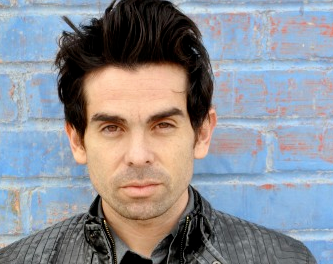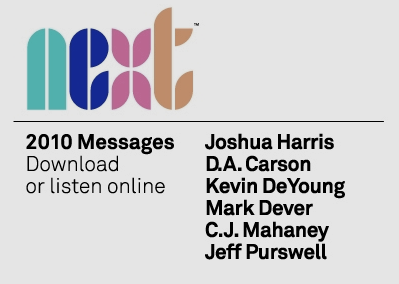OBJECTIONS TO THE WORKS OF CHRISTS
Matthew 9:1-17
Objections are quite common in life. Students object to the amount of homework teachers give them. Wives object to the absurd things their husbands can do and say. Children object to the amount of chores they get from their parents. Lawyers object in court.
Objection are generally given when one person thinks that another person is doing something or saying something wrong. In Matthew 9 we see that there were some who objected to things that Jesus said and did. The sinless Son of God did and said things that people felt were wrong. Was Christ wrong? Were the objections valid? Why did they object? Is there something we're missing here?
In order to understand why God has given us this passage of scripture we must first determine what it is that is wrong with mankind in this passage: how has the fall affected us. Once we understand that we can better determine what God has done to rescue us from our pitiful condition.
1. Who Is Christ To Forgive Sins?
Matthew 9:1-8, John 10:30-33, John 8:58-59, Leviticus 24:16
Sin can only be forgiven by the person against whom the offense is committed. I can not forgive you of sins committed against another person. When Jesus pronounces forgiveness to the paralytic man He is making the claim that this man's sins were against Him. In other words, Jesus is making the claim that He is God. And that is why there was an objection to what Christ was doing. To those watching Jesus was just a man. Jesus validates His deity by performing a miracle. His point was that if He could raise this paralyzed man and had power to do so, then He surely had the power to forgive sins. His miracle was there to validate that He was God. But those watching gave praise to God because God had given this man (Jesus) great power. In their minds Jesus was simply a man through whom God worked. They failed to see He is God incarnate--God in the flesh.
And this is the condition in which the fall has left us. We do not recognize God--even if He were right before. God must reveal Himself to us. And we must believe what God says about Him and what He says about His Son. It is not enough to simply believe that Jesus was a nice guy and a great leader. We must believe the He is God in the flesh and that He alone is able to forgive us our sin. He does this by His death, burial and resurrection. In God's graciousness He grants us faith to believe in Him and who He really is.
2. Why Does Christ Eat With Sinners?
Matthew 9:9-13, Luke 19:10, Mark 10:45
The self-righteous Pharisees were indignant that Jesus was eating with sinners. Because the Pharisees thought that they were "perfect" they refused to associate with sinners, perhaps fearing they'd be contaminated. Christ's eating with sinners was deplorable to them. They did not understand that God can not be affected by sin. They did not understand that God came to earth to save sinners, not the righteous. Jesus' words to the Pharisees must have stung: I didn't come to save the righteous, but sinners. Being that there is none righteous, Jesus' words seem to carry a bit of sarcastic tone as if to say, "You Pharisees are so righteous, you don't need a Savior." The truth was that they, too, needed a Savior. Scripture elsewhere affirms that Christ came to seek and save the lost. He came to give His as a ransom for many. Christ did not come to heal those who do not recognize that they are perishing and dying in sin under the wrath of God. Only when people realize this will they seek out the good doctor--Jesus!
We do well to show people how they have sinned against God by pointing them to the Law of God. That is what God's commands do. They show people how short they fall from God's glory. They show us our awful condition. They show us the wretched disease of sin and our future without intervention. It is only when we see ourselves as God sees us that will call out to Christ for help. And that is why these sinners and tax collectors came seeking Jesus...because He came seeking them in order to show them their miserable condition so that they'd receive spiritual healing and life from the hands of our good God.
The reason the Pharisees objected is because they thought that obedience to the Law of God merited them righteousness. They didn't understand that the Law condemns. And so when they see the sinners with whom Jesus ate, they have a self-righteous attitude as if they (the Pharisees) were better than the tax collectors and sinners. In truth the Pharisees should have seen themselves as people with whom Jesus needed to eat. But they didn't...and therefore were far from salvation.
3. Why Don't Christ's Disciples Fast?
Matthew 9:14-17, Matthew 6:16-18
Fasting is done for various reasons, one of which is during time of mourning. Jesus explicitly states that now is not the time for the disciples to fast--the Groom is here. In other words, when the Groom arrives to the wedding, it's time to celebrate. You are sad when He leaves. Jesus is saying that since He is among His people there is no reason for them to fast. The time will come when He departs and they will again fast. But for now, there is to be no fasting among His disciples.
Jesus then launches into some metaphoric language to explain further. He uses the illustration of unshrunk cloth and wineskins. Both may seem disconnected to fasting but they are connected if you understand the mind of the Jewish person in Jesus' day. If you take a piece of shrunken cloth with no elasticity and sow a piece of unshrunken cloth to it what will happen? Well, when the new cloth begins to shrink it will pull away from the shrunken cloth which has no more elasticity. This will cause the old fabric to tear and the garment will be useless. Something similar is to be said of wineskins. When you put unfermented wine in a wine skin it will begin to ferment and it will cause the wineskin to expand. Once the wineskin expands it will not shrink back. It will stay in it's expanded state. If you empy out the fermented wine and put in unfermented wine in the stretched out wineskin what happens? Well, the stretched-out wineskin holds more unfermented wine but has no room to stretch when fermentation takes place. The resuls will be a broken wineskin and spilled wine.
The point of all this is to teach the Jewish people (and us) that the Old Covenant/Testament of sacfrices and ceremonies cannot mix with the New Covenant/Testament. It simply will not work. In simplest terms, you can not cling to Mosaic Law and Christ at the same time. You can not practice circumcision + Christ. You can not practice animal sacrifice + Christ. You can not practice the Old with the New. The Old served it's purpose. It pointed the way to Christ. The Holy Days, ceremonies, sacrifices, temple worship, Priests, etc, all were shadows or pictures of Christ. Now that Christ was here, the Old had to go. Consequently that is why we have two "halves" to the Bible: The Old and New Testaments or Covenants. Clinging to both Old Testament rituals while trying to cling to Christ was part of the heresies and false teachings that the Apostles fought against in their letters to the church. The early Jewish Christians had to make a clean break from their Old Testament ways. Now what does this have to do with fasting?
Fasting was done along with the Day of Atonement. In brief that was the day in which sacrifices were made to atone (or cover up) the sins of Israel. It was part of Mosaic Law. Jesus in essence is telling those listening...that's Old Testament. But the New Testament (Jesus) is here. There's no reason to fast...the Savior is before you. Celebrate! "I'm here!"
This is the overall problem with all three objections we see in this passage. The Jews at large did not understand who Jesus was. Scripture teaches that Jesus came unto His own people and they did not receive Him. And in general they still do not receive Him as Messiah, as Savior, as God. Things are no different with the world at large. They do not receive Jesus as God. They do not believe what God has enabled us to believe about Christ. They are blind and in spiritual darkness. Therefore, we need to take the Word of God to them which will cause them to see Christ for Who He is. God has called us and commissioned us to go into the world and make known Christ. As Christ has been made known to you, have compassion on lost souls and go make Christ known to them.
Matthew 9:1-17
Objections are quite common in life. Students object to the amount of homework teachers give them. Wives object to the absurd things their husbands can do and say. Children object to the amount of chores they get from their parents. Lawyers object in court.
Objection are generally given when one person thinks that another person is doing something or saying something wrong. In Matthew 9 we see that there were some who objected to things that Jesus said and did. The sinless Son of God did and said things that people felt were wrong. Was Christ wrong? Were the objections valid? Why did they object? Is there something we're missing here?
In order to understand why God has given us this passage of scripture we must first determine what it is that is wrong with mankind in this passage: how has the fall affected us. Once we understand that we can better determine what God has done to rescue us from our pitiful condition.
1. Who Is Christ To Forgive Sins?
Matthew 9:1-8, John 10:30-33, John 8:58-59, Leviticus 24:16
Sin can only be forgiven by the person against whom the offense is committed. I can not forgive you of sins committed against another person. When Jesus pronounces forgiveness to the paralytic man He is making the claim that this man's sins were against Him. In other words, Jesus is making the claim that He is God. And that is why there was an objection to what Christ was doing. To those watching Jesus was just a man. Jesus validates His deity by performing a miracle. His point was that if He could raise this paralyzed man and had power to do so, then He surely had the power to forgive sins. His miracle was there to validate that He was God. But those watching gave praise to God because God had given this man (Jesus) great power. In their minds Jesus was simply a man through whom God worked. They failed to see He is God incarnate--God in the flesh.
And this is the condition in which the fall has left us. We do not recognize God--even if He were right before. God must reveal Himself to us. And we must believe what God says about Him and what He says about His Son. It is not enough to simply believe that Jesus was a nice guy and a great leader. We must believe the He is God in the flesh and that He alone is able to forgive us our sin. He does this by His death, burial and resurrection. In God's graciousness He grants us faith to believe in Him and who He really is.
2. Why Does Christ Eat With Sinners?
Matthew 9:9-13, Luke 19:10, Mark 10:45
The self-righteous Pharisees were indignant that Jesus was eating with sinners. Because the Pharisees thought that they were "perfect" they refused to associate with sinners, perhaps fearing they'd be contaminated. Christ's eating with sinners was deplorable to them. They did not understand that God can not be affected by sin. They did not understand that God came to earth to save sinners, not the righteous. Jesus' words to the Pharisees must have stung: I didn't come to save the righteous, but sinners. Being that there is none righteous, Jesus' words seem to carry a bit of sarcastic tone as if to say, "You Pharisees are so righteous, you don't need a Savior." The truth was that they, too, needed a Savior. Scripture elsewhere affirms that Christ came to seek and save the lost. He came to give His as a ransom for many. Christ did not come to heal those who do not recognize that they are perishing and dying in sin under the wrath of God. Only when people realize this will they seek out the good doctor--Jesus!
We do well to show people how they have sinned against God by pointing them to the Law of God. That is what God's commands do. They show people how short they fall from God's glory. They show us our awful condition. They show us the wretched disease of sin and our future without intervention. It is only when we see ourselves as God sees us that will call out to Christ for help. And that is why these sinners and tax collectors came seeking Jesus...because He came seeking them in order to show them their miserable condition so that they'd receive spiritual healing and life from the hands of our good God.
The reason the Pharisees objected is because they thought that obedience to the Law of God merited them righteousness. They didn't understand that the Law condemns. And so when they see the sinners with whom Jesus ate, they have a self-righteous attitude as if they (the Pharisees) were better than the tax collectors and sinners. In truth the Pharisees should have seen themselves as people with whom Jesus needed to eat. But they didn't...and therefore were far from salvation.
3. Why Don't Christ's Disciples Fast?
Matthew 9:14-17, Matthew 6:16-18
Fasting is done for various reasons, one of which is during time of mourning. Jesus explicitly states that now is not the time for the disciples to fast--the Groom is here. In other words, when the Groom arrives to the wedding, it's time to celebrate. You are sad when He leaves. Jesus is saying that since He is among His people there is no reason for them to fast. The time will come when He departs and they will again fast. But for now, there is to be no fasting among His disciples.
Jesus then launches into some metaphoric language to explain further. He uses the illustration of unshrunk cloth and wineskins. Both may seem disconnected to fasting but they are connected if you understand the mind of the Jewish person in Jesus' day. If you take a piece of shrunken cloth with no elasticity and sow a piece of unshrunken cloth to it what will happen? Well, when the new cloth begins to shrink it will pull away from the shrunken cloth which has no more elasticity. This will cause the old fabric to tear and the garment will be useless. Something similar is to be said of wineskins. When you put unfermented wine in a wine skin it will begin to ferment and it will cause the wineskin to expand. Once the wineskin expands it will not shrink back. It will stay in it's expanded state. If you empy out the fermented wine and put in unfermented wine in the stretched out wineskin what happens? Well, the stretched-out wineskin holds more unfermented wine but has no room to stretch when fermentation takes place. The resuls will be a broken wineskin and spilled wine.
The point of all this is to teach the Jewish people (and us) that the Old Covenant/Testament of sacfrices and ceremonies cannot mix with the New Covenant/Testament. It simply will not work. In simplest terms, you can not cling to Mosaic Law and Christ at the same time. You can not practice circumcision + Christ. You can not practice animal sacrifice + Christ. You can not practice the Old with the New. The Old served it's purpose. It pointed the way to Christ. The Holy Days, ceremonies, sacrifices, temple worship, Priests, etc, all were shadows or pictures of Christ. Now that Christ was here, the Old had to go. Consequently that is why we have two "halves" to the Bible: The Old and New Testaments or Covenants. Clinging to both Old Testament rituals while trying to cling to Christ was part of the heresies and false teachings that the Apostles fought against in their letters to the church. The early Jewish Christians had to make a clean break from their Old Testament ways. Now what does this have to do with fasting?
Fasting was done along with the Day of Atonement. In brief that was the day in which sacrifices were made to atone (or cover up) the sins of Israel. It was part of Mosaic Law. Jesus in essence is telling those listening...that's Old Testament. But the New Testament (Jesus) is here. There's no reason to fast...the Savior is before you. Celebrate! "I'm here!"
This is the overall problem with all three objections we see in this passage. The Jews at large did not understand who Jesus was. Scripture teaches that Jesus came unto His own people and they did not receive Him. And in general they still do not receive Him as Messiah, as Savior, as God. Things are no different with the world at large. They do not receive Jesus as God. They do not believe what God has enabled us to believe about Christ. They are blind and in spiritual darkness. Therefore, we need to take the Word of God to them which will cause them to see Christ for Who He is. God has called us and commissioned us to go into the world and make known Christ. As Christ has been made known to you, have compassion on lost souls and go make Christ known to them.
















1 comment:
Great exposition. Thank you for pointing us to Christ. It gives me urgency to confidently and joyfully share the gospel of Christ to those around me.
Post a Comment